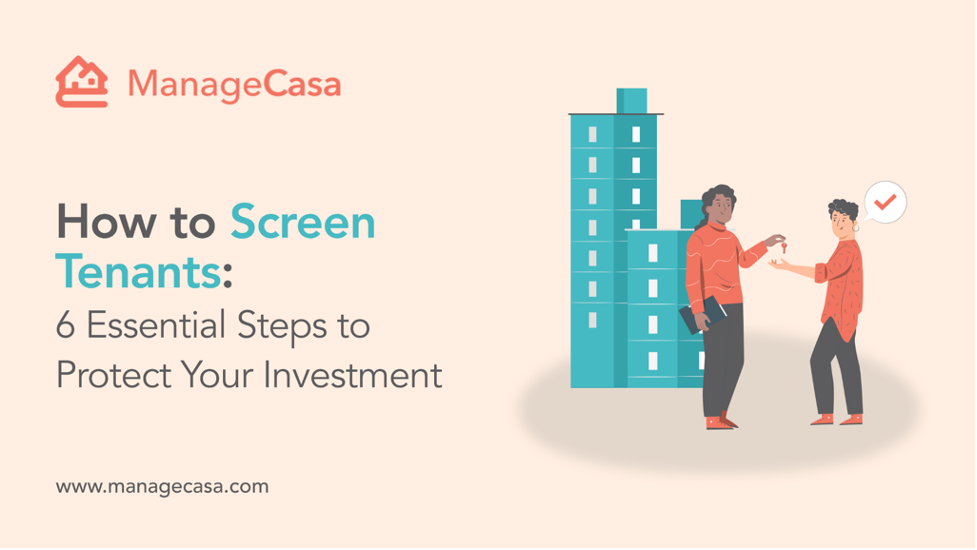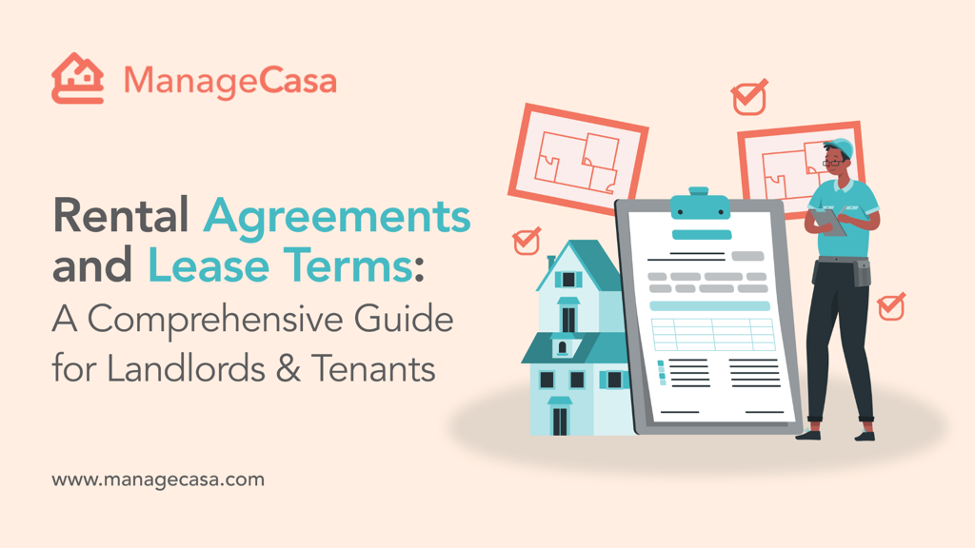10 Tips for Tenants to Maintain a Good Rental History
Looking for a new home can feel like the same old drill—filling out applications, waiting for screenings, and navigating all sorts of ups and downs—just to find that perfect place. It’s enough to make anyone feel stuck in a real estate roundabout! But there’s one thing that can make this whole process smoother: a solid rental history. If you’re wondering how to maintain a good rental history, read on for expert advice and proven rental history best practices that can transform your renting experience.
Take your rental history as your renter’s resume.
A good track record reassures landlords of your reliability and helps you lower move-in costs such as security deposits . It’s like having a golden key that unlocks the best apartments and leads to a stress-free living experience. For those focused on improving tenant rental history, every action you take can make a lasting impact on your record.
Discover the secrets to becoming the tenant every landlord dreams of having.
In this blog, you’ll find 10 practical tips to help elevate your rental strategy and secure that coveted occupancy. Enjoy the read and transform your rental experience!
1. Understand and Monitor Your Credit Score
Landlords often rely on credit scores to evaluate a tenant’s ability to pay rent on time. Knowing what landlords look for in rental history can start with your credit. A higher score makes you a more appealing applicant.
Action Steps
- Pay all bills promptly, including rent, utilities, and credit cards.
- Check your credit report regularly and dispute inaccuracies.
- Keep your credit utilization ratio low (i.e., avoid maxing out credit cards).
Pro Tip: Some online rent payment platforms report on-time payments to credit bureaus, which can help boost your credit over time.
2. Paying Rent on Time, Every Time
Consistency is essential when it comes to paying rent on time. Late or missed payments can lead to fees, damage your record, and weaken your references. This is one of the most critical rental history best practices.
Action Steps
- Set up automated payments or use an app that reminds you of upcoming due dates.
- Budget effectively to ensure monthly rent is always covered.
- Communicate proactively with your landlord if unforeseen circumstances arise.
Late Fee Alert: Chronic late payments can negatively impact your rental history and may lead to eviction.
3. Maintain and Respect the Property
Taking care of your rental clearly shows respect for your landlord’s investment and shows your commitment to maintaining a positive rental reputation. By caring for the property, you prevent wear-and-tear disputes and support a healthier landlord-tenant relationship.
Action Steps
- Keep your unit clean; promptly report maintenance issues.
- Document the unit’s condition upon move-in with photos or videos.
- When moving out, ensure the unit is in better or similar condition as when you moved in.
Security Deposit Tip: The better you care for the property, the higher your chances of receiving your full deposit back.
4. Foster Good Relationships with Neighbors
A supportive, friendly community reflects well on you as a tenant and contributes to maintaining a positive rental reputation. Good relationships with neighbors often lead to better feedback for future applications.
Action Steps
- Respect noise ordinances and shared spaces.
- Address disagreements calmly and directly.
- Stay informed about building policies that affect you and your neighbors.
Positive Reference Benefit: Neighbors can share positive feedback with landlords, boosting your chances of getting referred to your next rental.
5. Consider Renter’s Insurance
Having a renter’s insurance shows responsibility and safeguards your belongings in case of theft, fire, or other incidents—key factors in improving tenant rental history.
Action Steps
- Compare policies to find the right coverage at the best price.
- Check if your landlord requires renter’s insurance as part of the lease.
- Keep your policy details updated, especially after major purchases.
Peace of Mind: Renter’s insurance is generally affordable and can save you thousands in an unexpected mishap.
6. Explore Deposit Alternatives
Conventional security deposits can be expensive. Alternatives, such as security deposit insurance services, offer more flexibility and are a clever way of maintaining a positive rental reputation without a hefty upfront cost.
Action Steps
- Learn how security deposit insurance works and what it covers.
- Ask landlords if they accept security deposit alternatives.
- Keep records of all insurance-related paperwork for your reference.
Financial Freedom: Switching to a monthly fee instead of a large deposit can free up resources for covering expenses and daily needs.
7. Keep Documentation Organized
Staying organized is another critical aspect of rental history best practices. Well-maintained records can smooth communications with landlords and showcase your attention to detail.
Action Steps
- Save all lease agreements, receipts, and communications in a dedicated folder.
- Maintain digital copies of important documents, such as your credit report or references.
- Track maintenance requests, move-in/move-out checklists, and any landlord-tenant agreements in writing.
Document Everything: Detailed records can be your strongest proof of good standing in disputes or misunderstandings.
8. Provide Strong References: How to Get a Good Landlord Reference
A glowing reference from a past landlord can make all the difference. If you’re looking into how to get a good landlord reference, focus on leaving on good terms and maintaining a track record of reliability.
Action Steps
- Part on good terms with your current landlord.
- When you move out, ask for a reference letter, especially after a positive rental experience.
- Offer multiple references—landlords, employers, neighbors—to bolster your application.
Landlord Kudos: A tenant with on-time payments, respectful behavior, and good property care will likely secure a strong recommendation.
9. Communicate Effectively
Effective communication is fundamental. Open, respectful dialogue can resolve issues before they escalate, contributing to maintaining a positive rental reputation and clarifying what landlords look for in rental history.
Action Steps
- Respond promptly to messages or calls from your landlord.
- Be transparent about any changes in employment or financial status.
- Maintain a polite manner, even when addressing concerns or disputes.
Friendly & Proactive: Clear communication fosters trust, which can lead to more flexible lease terms or quicker problem resolution.
10. Know and Respect Your Lease Terms
Understanding and abiding by your lease is vital to maintaining a good rental history. A thorough understanding of the lease helps you avoid accidental breaches and protects your rental reputation.
Action Steps
- Read your lease thoroughly before signing; ask for clarification if anything is unclear.
- Follow stipulations regarding guests, pets, or property alterations.
- Keep track of lease start and end dates, and provide timely notice if you plan to move out or renew.
Avoid Surprises: Adhering to lease guidelines reduces the risk of disputes or penalties and strengthens your overall rental track record.
Establishing a solid rental track record is a gradual process built on consistent effort and smart decision-making. From keeping tabs on your credit to honoring the specifics of your lease, every action reinforces your credibility as a tenant. Embrace these 10 tips—whether you’re focusing on improving tenant rental history and pave the way for a smoother, more successful rental journey. Moreover, with the right software, like ManageCasa, landlords and property managers can effortlessly support this process, ensuring everyone involved has a positive and efficient rental experience.
Revolutionize Property Management with ManageCasa
Maintaining a positive rental history is essential for securing future housing opportunities and fostering a strong relationship with your landlord. As a tenant, your responsibilities include clear communication, paying rent on time, and proper property care. On the other hand, landlords ensure a well-maintained and smoothly managed rental experience.
That’s where ManageCasa comes in—an all-in-one platform designed to streamline and enhance every aspect of property management, creating a seamless experience for tenants and landlords.
Why Choose ManageCasa?
- Seamless Tenant Screening: Reduce risk and onboard quality tenants with TransUnion and Stripe-powered screening tools.
- Automated Rent Collection: Say goodbye to late payments with flexible payment options like credit/debit cards, ACH, and Apple Pay.
- Professional Website Integration: Build a high-performance website to showcase listings, attract tenants, and manage applications effortlessly.
- Smart Maintenance Management: Schedule repairs, track invoices, and coordinate with vendors from one dashboard.
- Reliable Accounting Solutions: Organize your financials with automated ledgers and owner statements tailored to your needs.
- Custom Reporting & Insights: Access personalized reports to track performance and optimize your rental strategy.
- Comprehensive Portfolio Management: Manage single-family homes, multifamily complexes, affordable housing, and community associations—all in one place.
More than just software, our platform is your property management partner. With modern automation, powerful financial features, and robust tenant management solutions, it helps eliminate tedious tasks so you can focus on expanding your rental business.
Ready to experience it for yourself? Schedule a free DEMO today!



